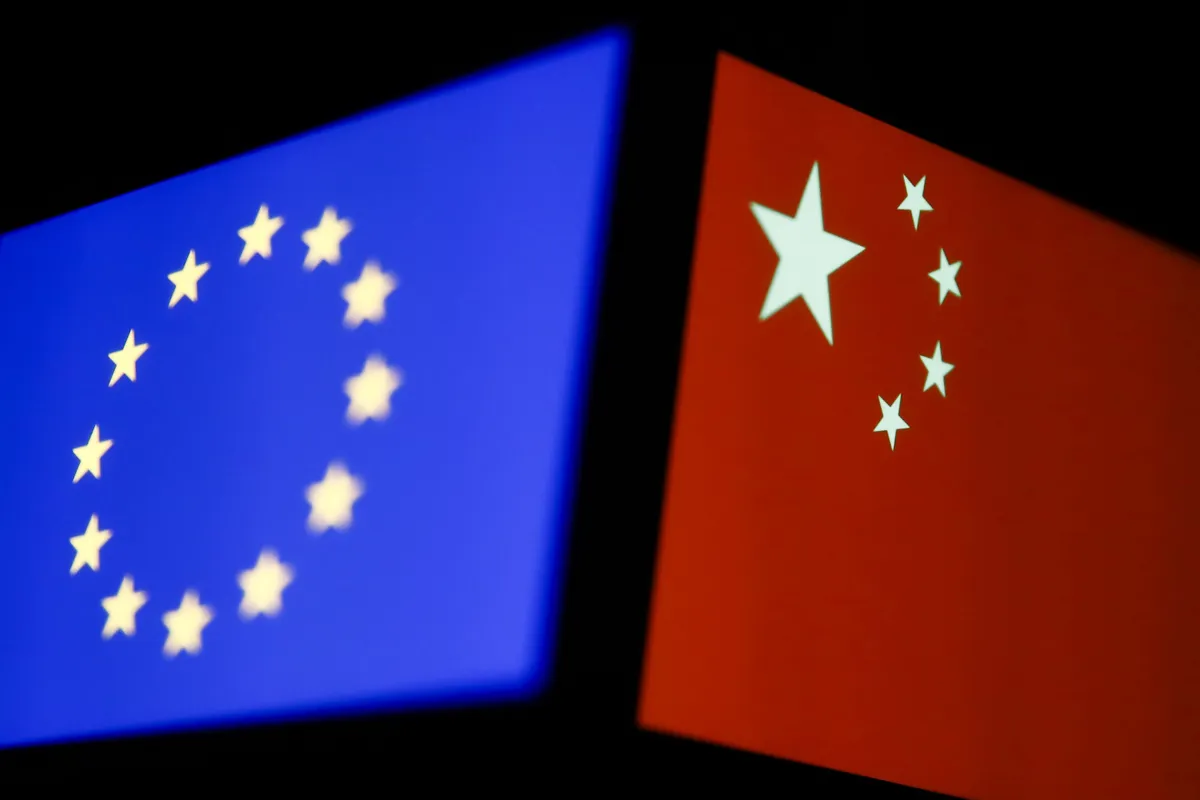In a sharp rebuke of recent European Union (EU) trade policy, China’s Foreign Ministry has called for the cessation of what it describes as the politicization and weaponization of technology and trade issues. At a press briefing in Beijing on Wednesday, Foreign Ministry spokesperson Mao Ning criticized the EU’s draft decision on electric vehicle (EV) tariffs, arguing that the proposed measures are driven by political motives rather than fair trade practices.
The EU’s draft decision includes minor adjustments to the provisional tariffs announced last month. The updated rates propose a 17% tariff on electric vehicles exported by BYD, China’s largest EV manufacturer, and a steeper 36.3% tariff on vehicles from Shanghai-based SAIC Motor. These tariffs are intended to address what the EU describes as unfair competition from Chinese electric cars. However, the tariffs are still subject to approval by EU member states, with a final decision expected by early November. This timeline extends four months beyond the July 5 effective date of the provisional tariffs.
During the briefing, Mao denounced the tariff plan as politically motivated and urged the EU to reconsider its approach. “China is seriously concerned about the EU’s recent actions,” Mao stated. “We urge the EU to correct its wrongdoings and avoid escalating trade tensions.” Mao’s comments reflect broader concerns within China about the implications of these tariffs on both the bilateral trade relationship and global climate goals.
In addition to the trade dispute, Mao addressed other geopolitical issues at the briefing. She expressed alarm over a reported approval by the Biden administration of a classified nuclear strategy document that reportedly highlights China’s expanding nuclear arsenal. According to an American media report, this document, passed in March, underscores the rapid growth of China’s nuclear capabilities, which could soon rival those of the United States and Russia in terms of both size and diversity. Mao’s remarks indicate that China views this development as another facet of geopolitical tension with the U.S.
Mao also responded to criticisms from Taiwan President Lai Ching-te, who had accused China of military aggression in the waters surrounding Taiwan. Mao rejected these allegations as unfounded and part of a broader narrative of political posturing.
Furthermore, Mao addressed a recent report concerning new regulations for foreign consular officials in Hong Kong. According to the report, Beijing now requires foreign consuls to obtain prior approval from Chinese authorities for business visits to the Greater Bay Area, which includes Macao and southern Guangdong province. While Mao did not confirm the specifics of the report, she emphasized that under the Vienna Convention on Consular Relations, foreign officials should seek consent for any visits outside their consular districts for business purposes.
On the topic of the EU’s proposed import duties on Chinese electric vehicles, Mao condemned the move as an act of protectionism and political dominance. She argued that these tariffs ignore objective facts, violate World Trade Organization (WTO) rules, and undermine both the EU’s green transition efforts and global climate initiatives. “This investigation is a typical example of protectionism,” Mao asserted. “It damages the interests of all parties involved and goes against the historical trend.”
Mao urged the EU to demonstrate sincerity and work collaboratively with China to resolve trade disputes. “We call on the EU to avoid escalating trade frictions and affecting mutual trust and cooperation between China and the EU,” she said. “China will take all necessary measures to firmly defend the legitimate rights and interests of Chinese companies.”
The new regulations for consular officials in Hong Kong could complicate diplomatic visits, as foreign officials may need to provide detailed explanations for their trips, including personnel, timing, and intended destinations. This development adds another layer of complexity to the already strained diplomatic relations between China and various international stakeholders.
As the EU and China navigate these contentious issues, the coming months will be crucial in determining the trajectory of their economic and geopolitical relationship.
